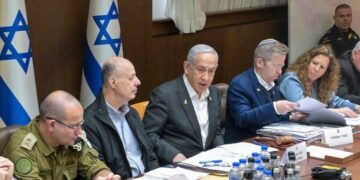Eid al-Fitr, also known as the Festival of Breaking the Fast, marks the end of Ramadan, a sacred month of fasting, devotion, and self-discipline. This blessed occasion is not just a celebration but a manifestation of gratitude to Allah for granting us the ability to worship and seek His mercy.
The Importance of Eid al-Fitr
Eid al-Fitr is a day of joy and thanksgiving, a time to express gratitude for the strength to observe Ramadan and seek closeness to Allah. The Prophet Muhammad (peace and blessings be upon him) emphasised the significance of this day as a time of charity, unity, and prayer.
The obligation of Zakat al-Fitr before Eid prayer highlights the spirit of generosity and ensures that the less fortunate can partake in the celebrations. The Prophet (peace be upon him) said:
“The fast remains suspended between Heaven and Earth until the Sadaqat al-Fitr is given.” (Ibn Majah)
This teaches us the importance of purifying our fasts and sharing our blessings with others.
Duas and Acts of Worship
On this blessed day, Muslims engage in various acts of ibadah, including Salah, supplication, and remembrance of Allah (dhikr). The morning of Eid should be spent in prayer and seeking Allah’s forgiveness.
The Quran states:
“And when My servants ask you concerning Me, indeed I am near. I respond to the invocation of the supplicant when he calls upon Me…” (Surah Al-Baqarah 2:186)
Among the recommended duas on Eid al-Fitr are:
- Allahumma taqabbal minna (Oh, Allah, accept [this worship] from us).
- Rabbana taqabbal minna innaka Antas-Sami’ul-Alim (Our Lord, accept [this] from us. Indeed, You are the Hearing, the Knowing). (Surah Al-Baqarah 2:127)
- Astaghfirullah wa atubu ilayh (I seek forgiveness from Allah and turn to Him in repentance).
Dhikr and Remembrance of Allah
Eid is an opportunity to glorify Allah through Takbeer:
“Allahu Akbar, Allahu Akbar, La ilaha illa Allah, Allahu Akbar, Allahu Akbar wa lillahil-hamd.”
The Sunnah encourages us to recite this takbeer from the night before Eid until the prayer, showing gratitude and acknowledging Allah’s greatness.
Conclusion: A Prayer for Acceptance and Guidance
As we celebrate this day of joy, let us turn to Allah with sincerity:
Ya, Allah, accept our fasts, prayers, and supplications offered during Ramadan. Forgive our shortcomings and guide us on the straight path. May our hearts remain steadfast in faith, and may we always seek Your pleasure in all we do.
Ya Allah, bestow Your mercy upon us, our families, and the entire Ummah. Grant us the strength to continue our worship beyond Ramadan and protect us from heedlessness. May we be among those written among the righteous and enter Jannah with Your mercy.
May Allah guide us always, regardless of the direction we set out, and may He bless our efforts in seeking His pleasure.
Rabbana taqabbal minna innaka Antas-Sami’ul-Alim














































